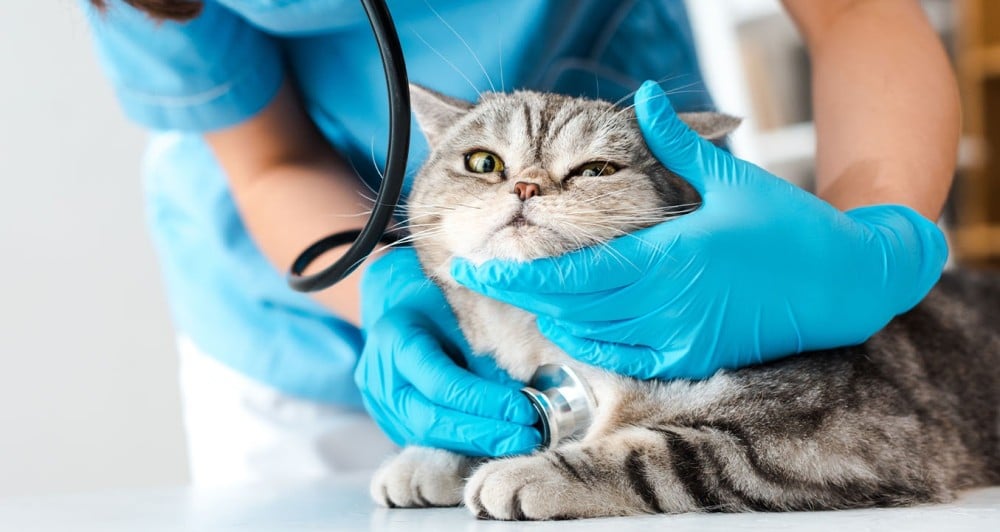
When should I take my pet cat to the vet?
Welcoming a cat into your home is a joyful experience, marked by soft whispers and playful gestures that quickly become an essential part of your daily life. Beyond the hugs and warm moments, being a responsible cat owner requires proactive health care. In this comprehensive guide, we'll break down the ins and outs of cat health, with special focus on the vital aspect of knowing when to take your dear cat to the vet. Whether you're a new cat owner or a seasoned cat lover, understanding the signs and adopting regular checkups are crucial to ensuring your pet friend thrives in a state of optimal health and happiness.
The importance of regular vet visits
Proactive Pet Care: Why Regular Vet Visits Matter for Cats?
Cats, like humans, benefit greatly from regular health examinations. This section will review the preventive aspects of vet visits, highlighting the role of vaccinations and health checks. By understanding the importance of these regular checkups, you are actively contributing to the overall well-being of your pet friend.
Understand preventive measures: vaccinations and health checks
Embark on a journey in preventive care by exploring the vital roles of vaccinations and health screenings. Find out how up-to-date vaccinations protect your cat from common diseases, and understand the comprehensive nature of health checks as they can detect and treat potential problems early.
Signs your cat needs immediate medical attention
Decoding your cat's signals: Recognizing your cat's need for immediate medical attention
Cats are camouflaged in showing signs of illness, making it essential for their owners to remain vigilant. This section guides you on how to decipher behavioral changes, identify physical symptoms, and recognize unusual habits that indicate the need to immediately seek help from your veterinarian.
Eliminating common health issues: recognizing and dealing with diseases
Walk through common health issues cats may face, from respiratory problems to digestive issues. Get insights on how to recognize symptoms and when to seek professional medical help, to ensure quick and effective care for your cat.
Age-specific medical guidelines
Tailoring care to your cat's life stages: Roadmap for vet visits
Cats go through distinct life stages, each requiring special medical care. This section provides guidance for kittens, adults, and senior cats, covering vaccinations, examinations, and health considerations for each age.
Caring for the Big Cat: Dealing with the Health Challenges of the Golden Years
Explore the unique considerations of caring for a senior cat, including common health challenges and how to enhance their quality of life. From dealing with arthritis to managing dental problems, learn how to address your cat's unique needs in her older years.
Dental health for cats
Oral health is often overlooked in daily cat care. She discusses the importance of keeping your cat's mouth clean and signs of potential dental problems. Share insights into regular dental checkups and practical at-home dental care tips to complement the efforts of veterinary professionals.
Preventive Oral Health Care: Key to Cats' Well-Being
Learn about preventive measures you can take to promote your cat's dental health. From proper brushing techniques to healthy dental treats, gain insights into ways to keep your cat's teeth clean and strong.
Always maintain the cleanliness of your pet by maintaining the length of its hair and the cleanliness of its teeth with our grooming services, and you can book them from cat grooming services.
Preventive and anti-parasitic medications
This section highlights the importance of preventive measures against common parasites such as fleas, ticks and worms. Explore recommended schedules for administering preventative medications and get guidance on choosing the right products for your cat's specific needs.
Parasite awareness: recognition and prevention of common infections
Understand the threats posed by common parasites and how to recognize signs of infestation. This section equips you with the knowledge necessary to protect your cat from external and internal parasites, ensuring its overall health and well-being.
Always go to clean your cat with parasite sprays
Create a stress-free vet visit experience
Veterinarian visits may cause stress in cats, leading to agitated behavior. This section provides practical tips for reducing stress during vet visits, including positive reinforcement, carrier training, and creating a comfortable environment in the clinic.
In conclusion, proactive veterinary care is the foundation of a healthy, happy life for your furry friend. By giving preference to regular vet visits, understanding age-specific guidelines, adopting dental health care, and implementing preventive measures, you can confidently navigate your cat's health care journey. This comprehensive guide is a roadmap to becoming a guardian of your feline health, while fostering a strong and lasting bond with your beloved pet.

